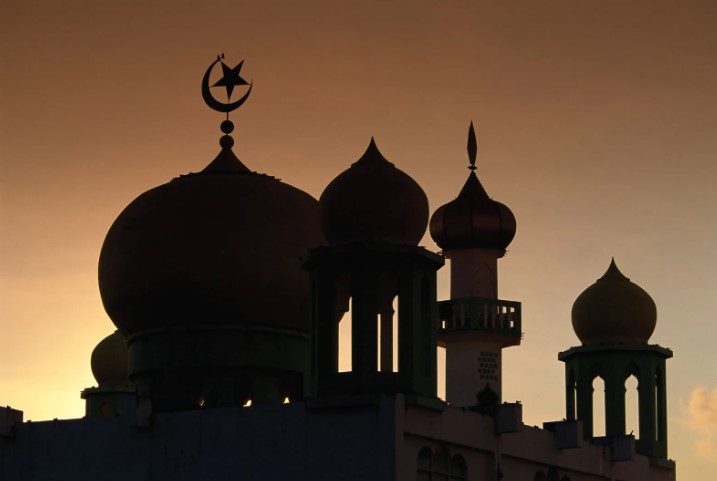
I once wrote a lot about Islamic finance, but haven’t been back there lately. I also used to write a lot about Hawala, but have also not written much lately. They are completely unrelated, except that both are popular in the Middle East, and both sit in my back pocket as examples of how to do finance differently.
If you’re not familiar with either, here’s a couple of simple definitions*:
Islamic banking is banking or financing activity that complies with Sharia (Islamic law) and its practical application through the development of Islamic economics. Some of the modes of Islamic banking/finance include Mudarabah (profit-sharing and loss bearing), Wadiah (safekeeping), Musharaka (joint venture), Murabahah (cost-plus), and Ijara (leasing).
Then I heard about another part of the Islamic financial system the other day that intiruged me: Zakat.
Zakat is a form of almsgiving, considered in Islam as a religious obligation and one of the Five Pillars of Islam. Zakat is a religious duty for all muslims who meet the necessary criteria of wealth to help the needy. It is a mandatory charitable contribution.
According to Investopedia:
- Zakat is a religious obligation for all Muslims who meet the necessary criteria to donate a certain portion of their wealth each year to charitable causes.
- It is said to purify yearly earnings that are over and above what is required to provide individuals and their families with their essential needs.
- Zakat is based on income and the value of possessions.
- The common minimum amount for those who qualify is 2.5% or 1/40 of a Muslim's total savings and wealth.
- No zakat is required when someone's personal wealth falls below the threshold during a lunar year.
A good example of Zakat online is Penny Appeal who are supporting many important projects from the Turkish earthquakes through to the Pakistan floods. Others include Water Aid and Orphans in Need. There are many more but, like everything, it’s moving online and into mobile apps. A good example is the Deen, an Islamic app that covers everything from Zakat calculations to prayer times, and the Zakat Refugee Fund app from the United Nations.
To be honest, I like a lot what I see in Islamic finance. Unfortunately, another area of Middle East and African finance is hawala, which has a bad name in Europe and America. Why? Because it is often associated with money laundering and terrorism. First, what is hawala?
Hawala is a popular and informal value transfer system based on the performance and honour of a huge network of money brokers (known as hawaladars). They operate outside of, or parallel to, traditional banking, financial channels and remittance systems. The system requires a minimum of two hawaladars that take care of the "transaction" without the movement of cash or telegraphic transfer.
Interestingly, some are now saying that bitcoin is the new hawala. By way of example, hawala is banned in India but, according to India’s Economic Times, “a new hi-tech form of hawala has appeared: the digital currency, bitcoin. As a result of GoI’s (the Government of India’s) demonetisation initiative, today, there is a flood of such digital transactions in the country”.
There’s certainly something happening here as the State of Kerala in India notes, many get wrapped up in such activities without realising it is still illegal. They call it ‘a racket’.
The racket daily generates over Rs seven crore (around USD$850,000) towards commission and transfer charges. The inquiry further found that this money is used chiefly for synthetic drug dealings, which could generate over 400 percent excess profit.
Upon handing over the dirham currency equivalent to Rs 21.74 to the hawala racket, cryptocurrency for an equivalent amount will be deposited in the accounts (Wallet) of the racket chain in India. An equivalent value of this amount will be provided to the ‘customer’ back home in Indian currencies. Many working abroad, but drawing moderate salaries, often fall into their net, and transfer money thinking it’s legal.
I should make clear that Islamic finance and Zakat are not the same as hawala. The former is supporting the community; the latter is also meant to be, but can be used for illicit purposes. However, I have purely covered all three here because I find these forms of finance in my travels to the Middle East, Africa and India fascinating. With the increasing reach of digital services, all of these forms of finance are going to expand and possibly explode over the next decade.
Postnote:
As I am not an expert on Islamic Finance, Zakat or hawala, if any of the above needs clarification from someone who has more expertise, please enlighten me.
* Source: Wikipedia
Chris M Skinner
Chris Skinner is best known as an independent commentator on the financial markets through his blog, TheFinanser.com, as author of the bestselling book Digital Bank, and Chair of the European networking forum the Financial Services Club. He has been voted one of the most influential people in banking by The Financial Brand (as well as one of the best blogs), a FinTech Titan (Next Bank), one of the Fintech Leaders you need to follow (City AM, Deluxe and Jax Finance), as well as one of the Top 40 most influential people in financial technology by the Wall Street Journal's Financial News. To learn more click here...

